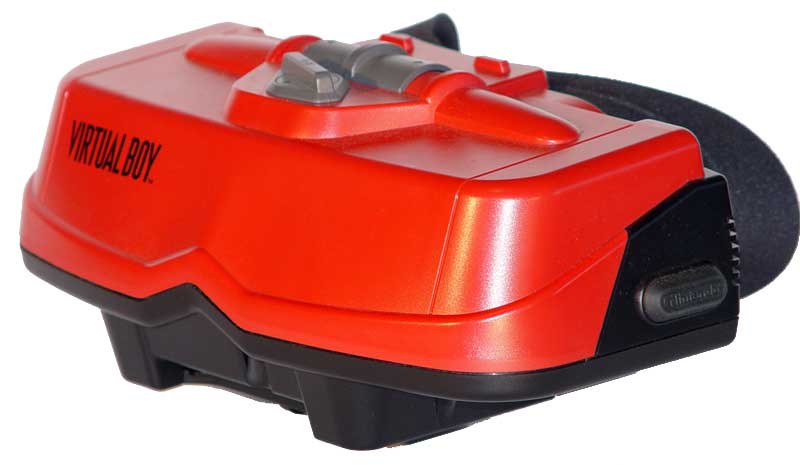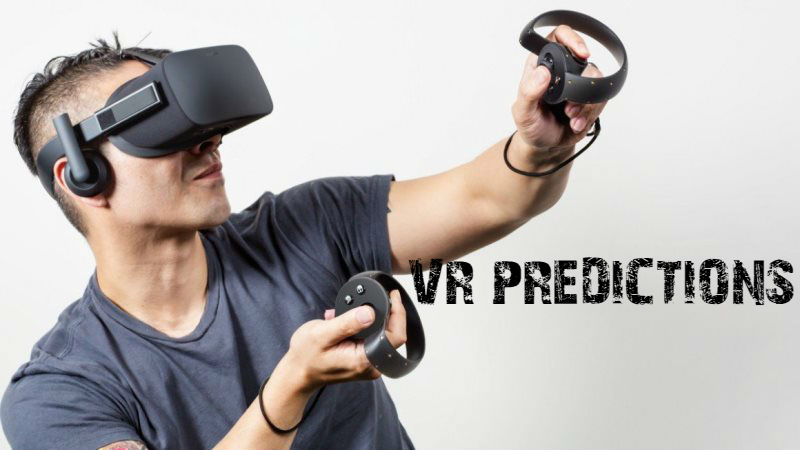There has been a lot of buzz about VR recently. Its been a long time coming but at last, consumers can get their hands on their very own virtual reality headsets. But will it be a commercial success? There’s no denying it’s an incredible leap forward in technology but does it have the potential to enter the mainstream in the same way consoles and gaming PC’s have?
There are several pitfalls along the way that Oculus, Sony, Samsung and co. are going to have to avoid if they want their respective products to really take off. Fortunately, the dangers of these pitfalls have already been highlighted for them. When the Virtual Boy was released by Nintendo on July 21st 1995 it was one of the biggest failures in gaming history. It was a truly pathetic excuse for a console and was discontinued only a year later. If today’s VR wants to succeed it must learn from the mistakes made by Nintendo all those years ago. The Virtual Boy failed because of, among many, many other reasons, a poor games lineup at launch, discomfort caused by use and an appalling marketing campaign.
The current games line-up is a slight cause for concern. There are a few nice “experiences” out there but most of the games currently lack any kind of longevity or hardcore appeal. A good example of this is PlayStation VR Worlds, which was released with the PlayStation headset. While the games within it are technically and visually impressive, none of them have any lasting appeal. There is simply no reason to play through something like The London Heist or Ocean Descent more than once.
It is of course far too early to write off VR gaming as a whole, but hardcore and long time gamers really wont be drawn in by whats currently on offer. It’s a real problem. Things are better on PC but with the barrier to entry being so much higher it will still be difficult for VR to find its feet. An Oculus Rift headset currently costs around £550, £200 more than Sony’s. Some substantial games are needed in order to get people on board.
One of the biggest obstacles on the road to truly immersive VR gaming is the nausea it can induce during play. Virtual-reality sickness (also known as cyber-sickness) can lead to headaches, nausea, vomiting, pallor, sweating, fatigue, drowsiness, disorientation, and apathy. This could kill VR gaming if not properly addressed. A lot of games are based around running, jumping and other forms of high-speed movement, but if these core concepts make people physically ill then what are we left with? This is a problem I desperately hope a solution is found for soon. I would hate to see something like this hold back something with so much potential.
This may all sound a bit grim, but despite everything I’ve said I actually think that VR will succeed. I strongly believe that trend setters will save virtual reality gaming. But who are these “trend setters”? In today’s social media dominated world, Youtubers. The biggest personalities on YouTube have millions of subscribers and command incredibly loyal support. They essentially now act as the “early adopters”. And they’ve certainly adopted VR gaming.
Go to YouTube and search for “VR”. There are countless videos with untold millions of views between them, all of virtual reality gaming. I don’t see how anything could fail with that kind of publicity behind it. This is where contemporary VR truly distances itself from the failure of the Virtual Boy. Nintendo spent more than £20,000,000 on a marketing campaign that went absolutely nowhere. YouTube has allowed companies like Sony to get a huge amount of exposure without spending a penny.
VR is one of the most exciting things to happen to gaming in a long time. Its a real leap forward in technology and has the potential to fundamentally change the way we play games. Who knows how the gaming landscape might look in five or ten years time? Sure, there are a few problems, but come on, this stuff has only been around a few years. Overall I still have a few doubts. The sickness, the games and the price are all concerns. But overall I believe that what VR has to offer is more than enough to make it a success.



